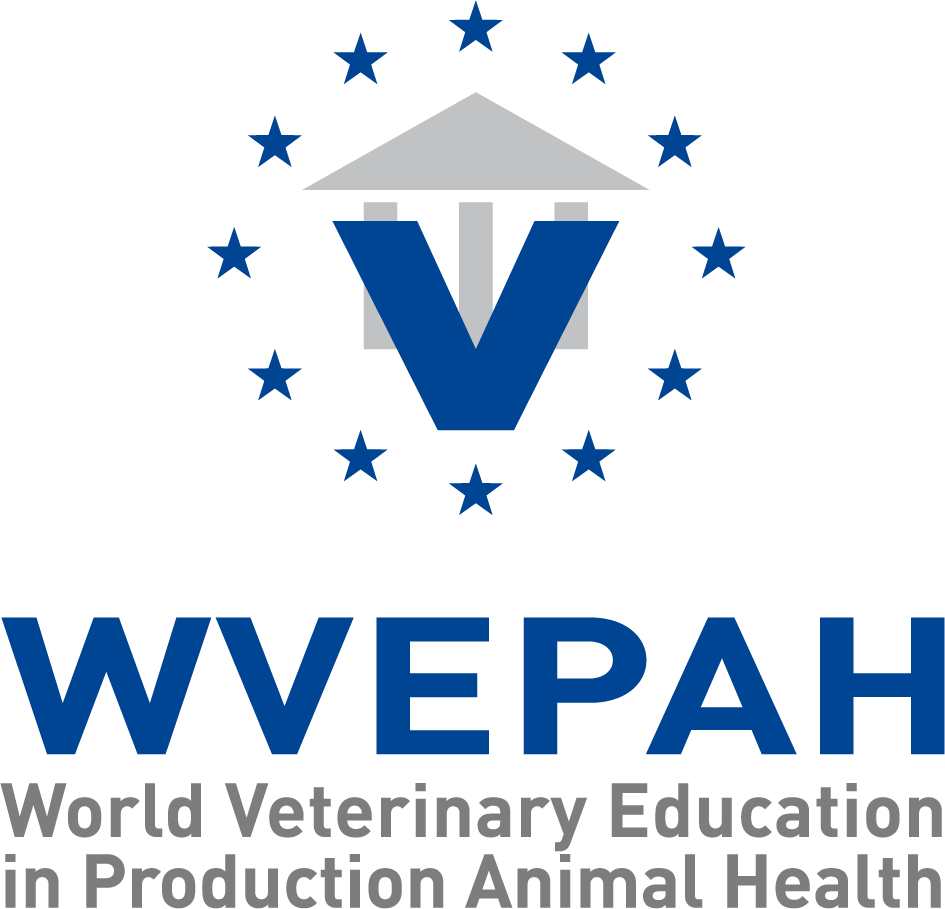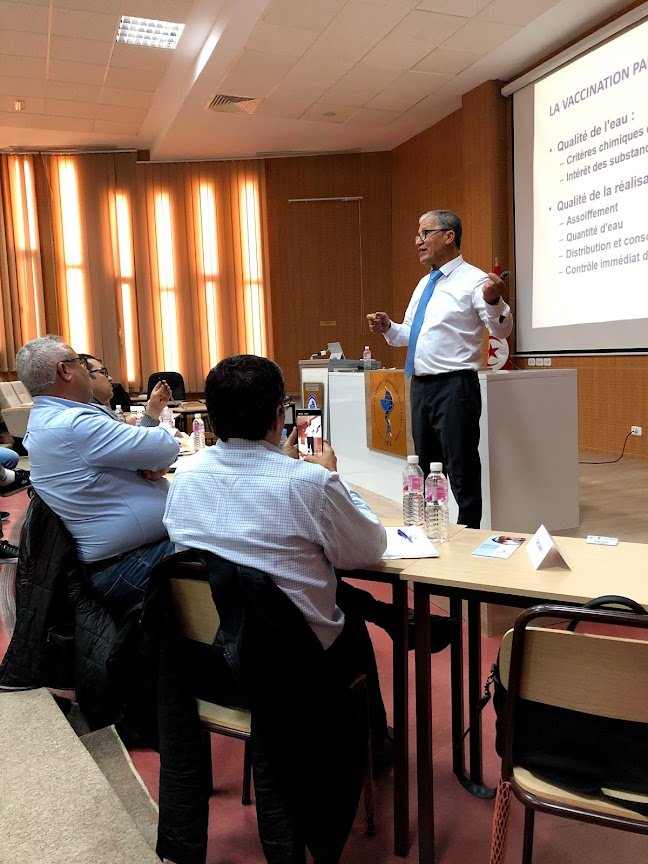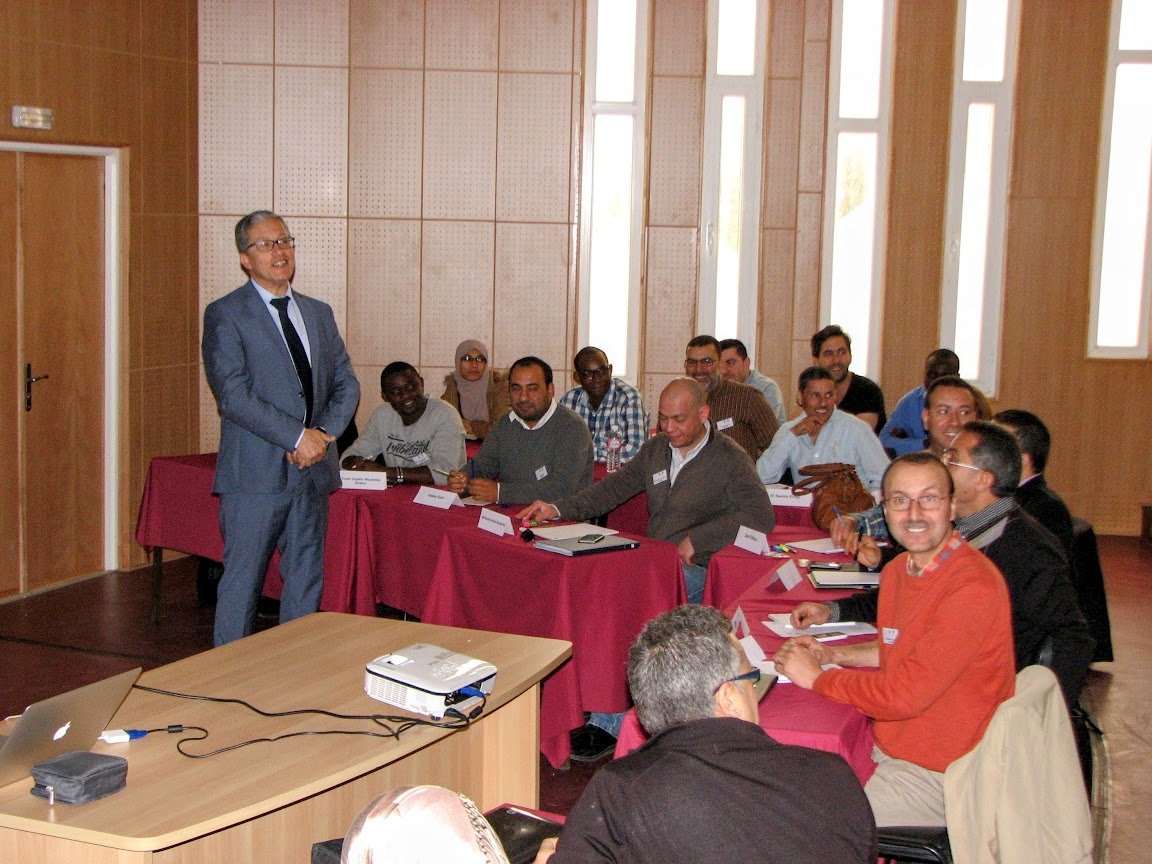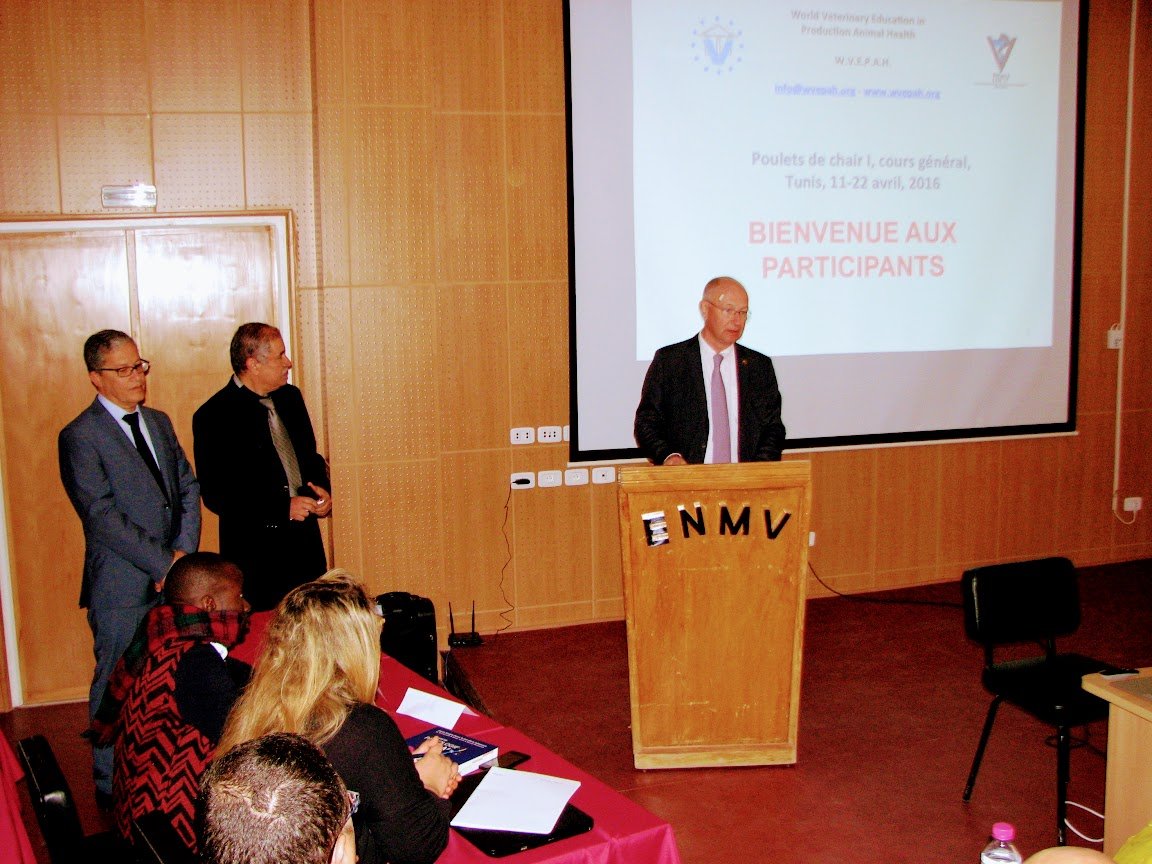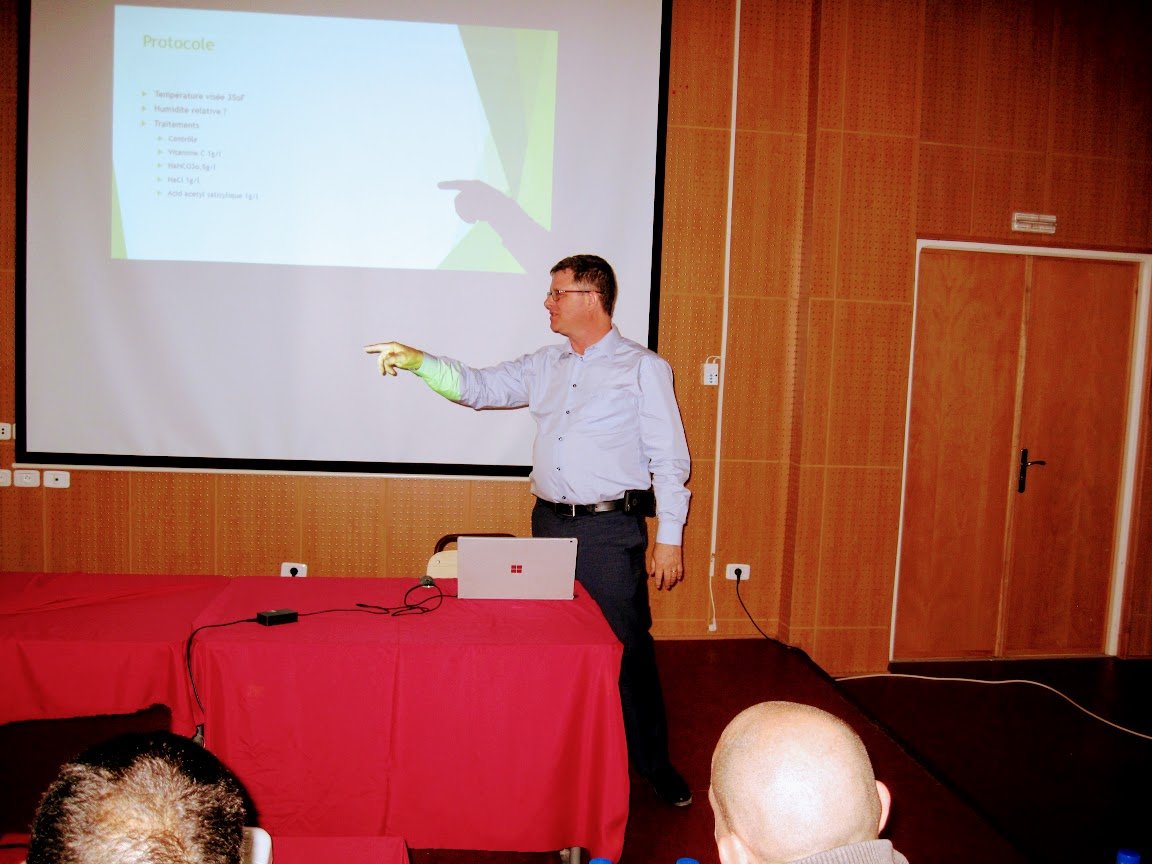Tunis 2018
Week 1
The course kicks off with a welcome session, followed by student presentations and an exploration of global egg production. Topics covered include egg quality, its nutritional value, and the physiology of its formation. Production systems for laying hens, genetic lineages, and economic management aspects are also examined.
The second day focuses on the nutrition of pullets and laying hens, particularly dietary recommendations and egg weight control. The day concludes with discussions on shell formation and the technical and economic management of farms.
On the third day, emphasis is placed on the environment of laying hens, neoplastic diseases such as Marek's disease, and conducting investigations into avian diseases.
The week ends with sessions on avian infections, including E. coli, botulism, external parasites, as well as discussions on water quality and intestinal diseases.
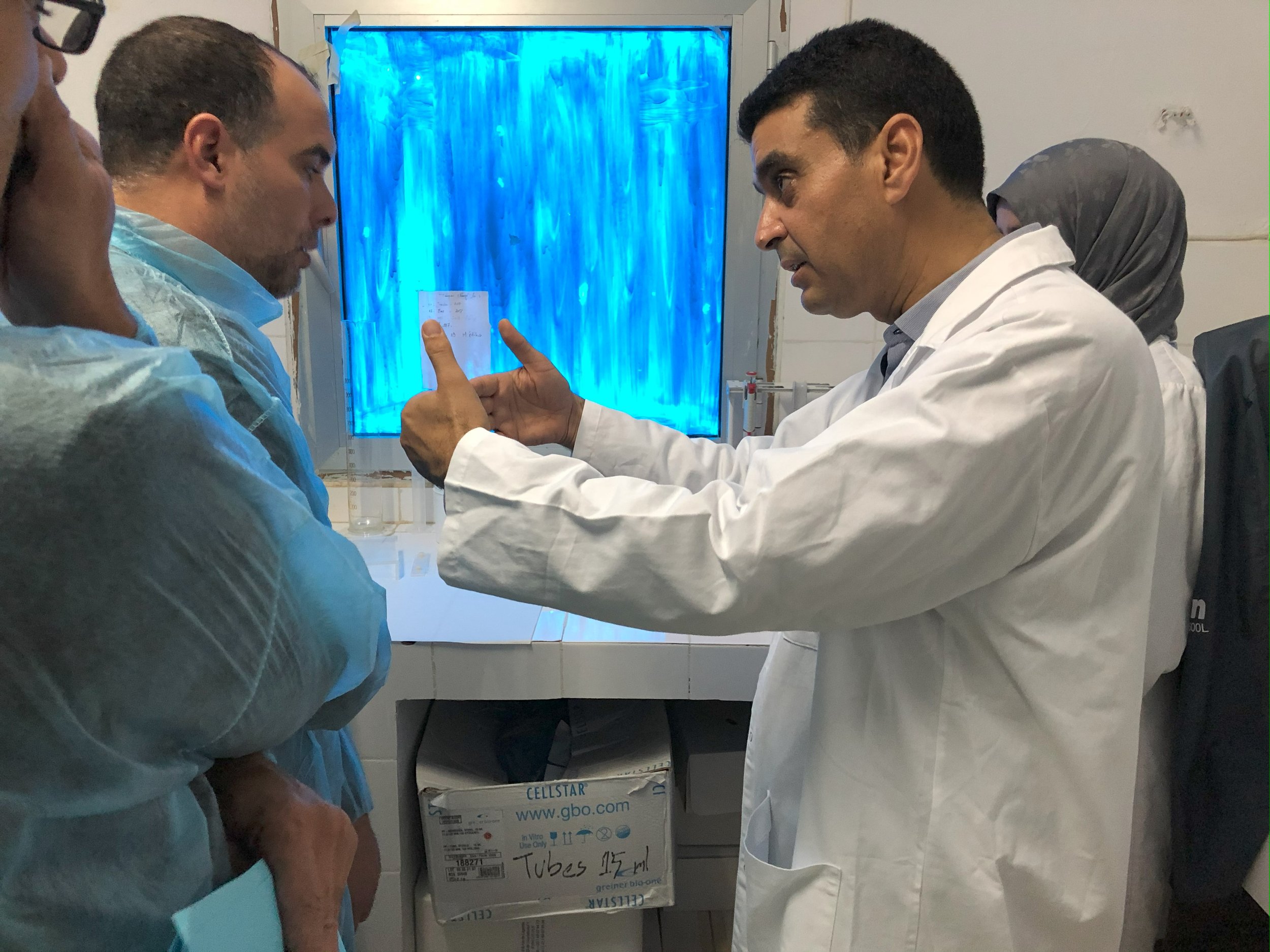
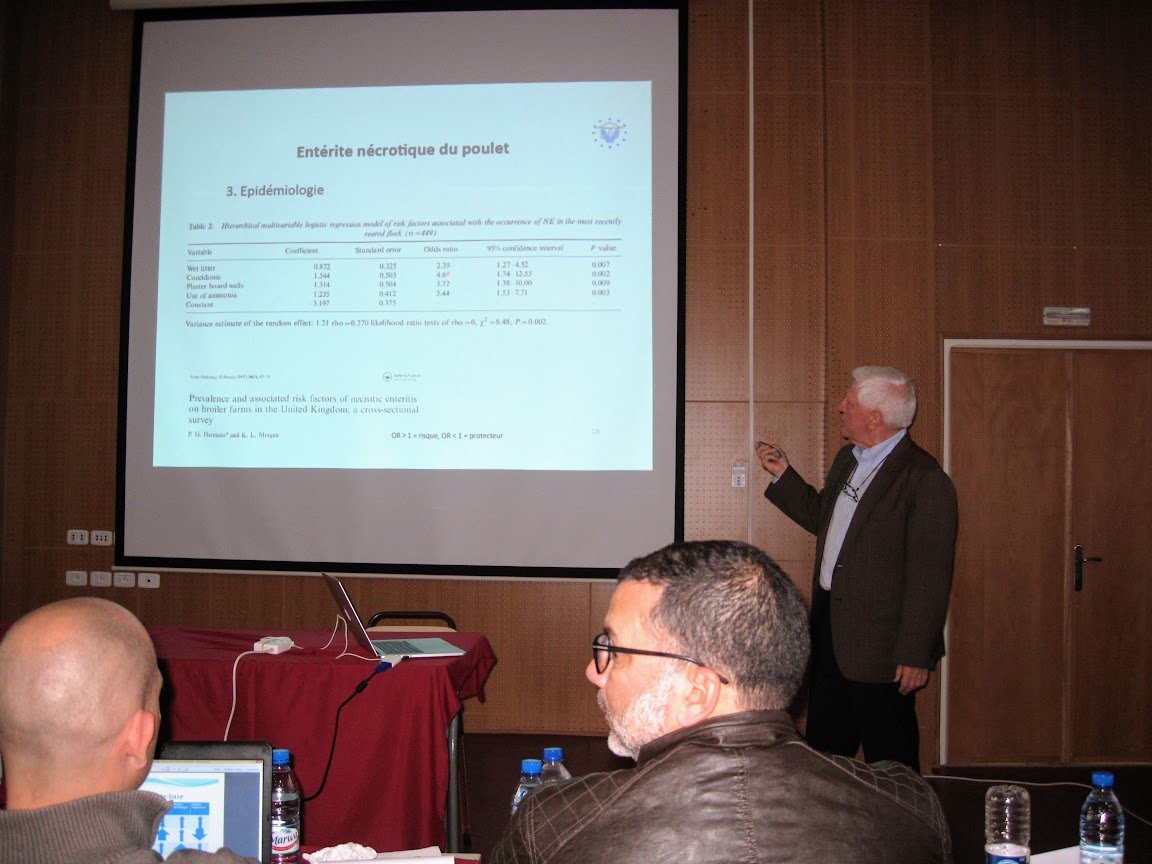
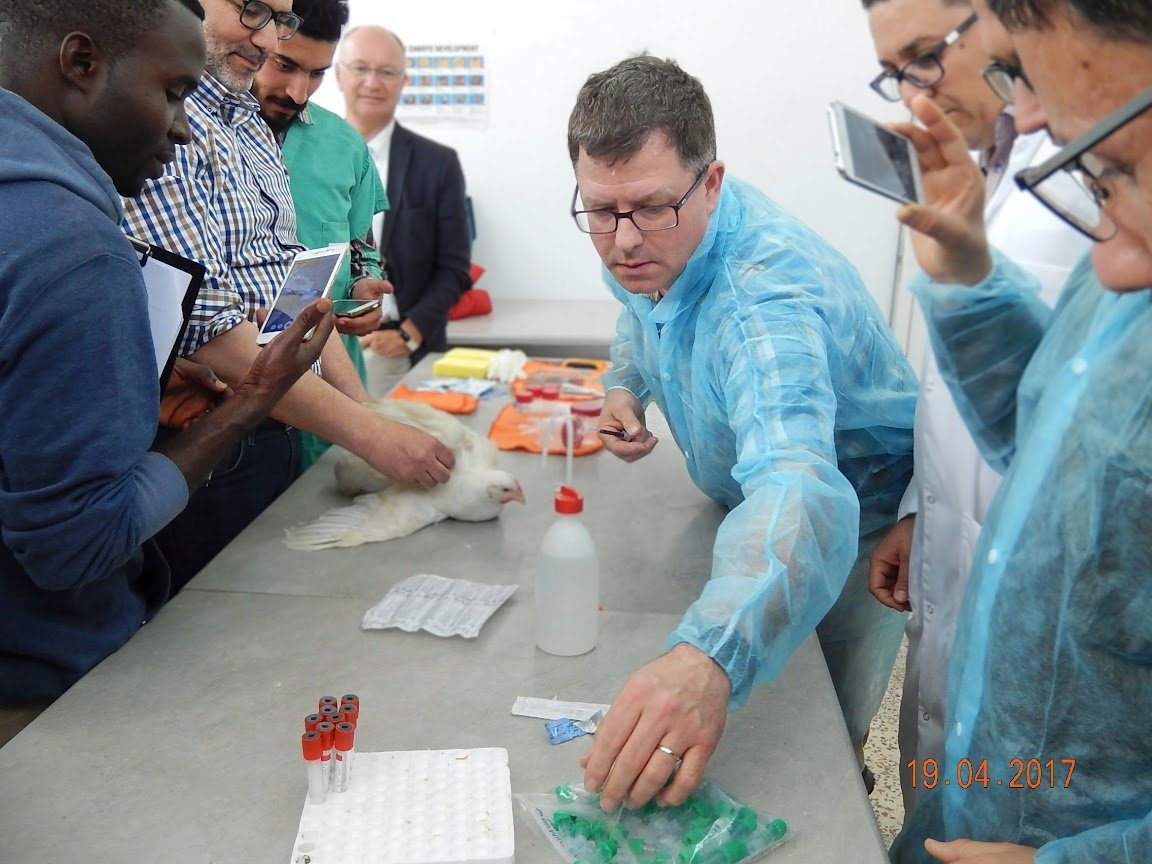
Week 2
The second week begins with an exploration of avian vaccines and vaccination programs tailored to various contexts. Vaccination techniques and diseases such as avian encephalomyelitis and infectious chicken anemia are also discussed.
The course then addresses avian influenza, associated biosafety measures, and other diseases such as infectious coryza. Student-led clinical case presentations and practical laboratory sessions round out the day.
Common issues in the early days of chick life, respiratory diseases, and locomotion problems are examined on the third day. The day concludes with discussions on abnormal laying hen behaviors.
The final day includes sessions on specific health issues in laying hens, such as visceral and skeletal problems, as well as discussions on drug use in poultry farming. The course concludes with an examination and the presentation of participation certificates.
